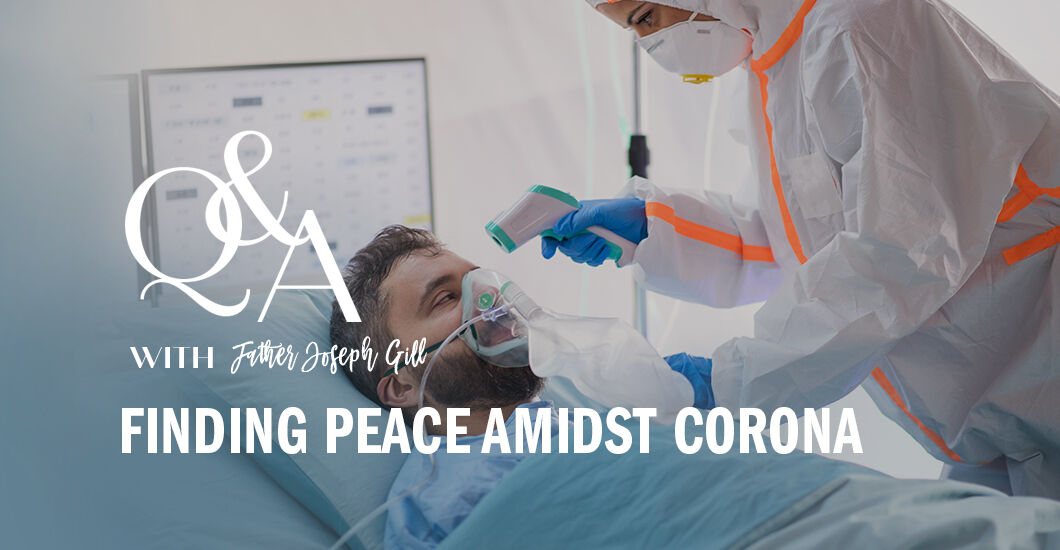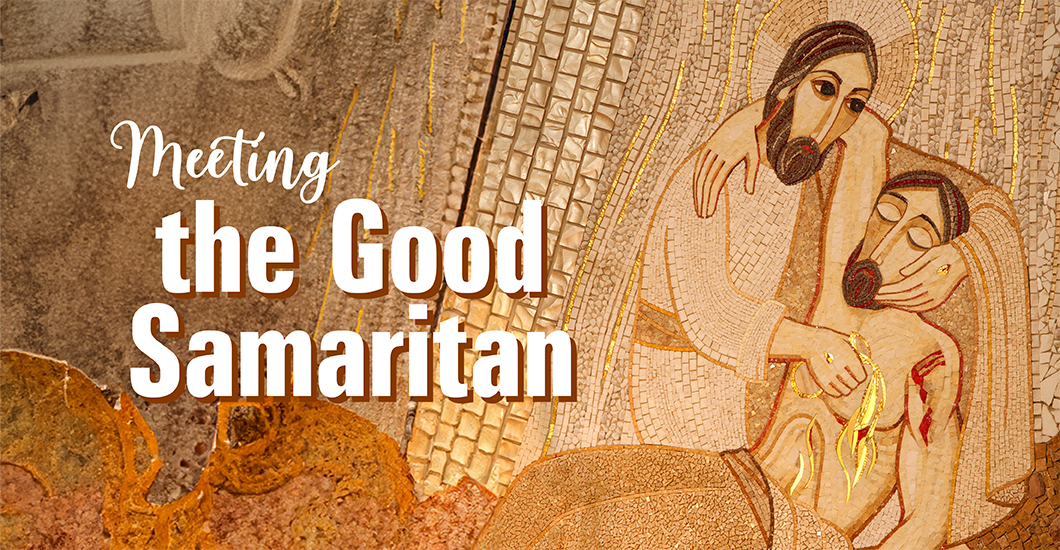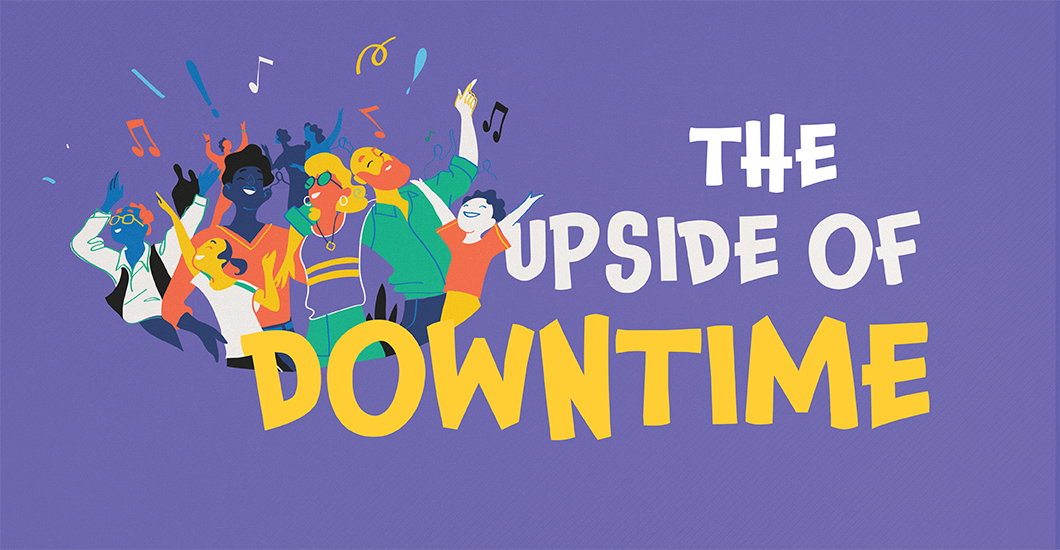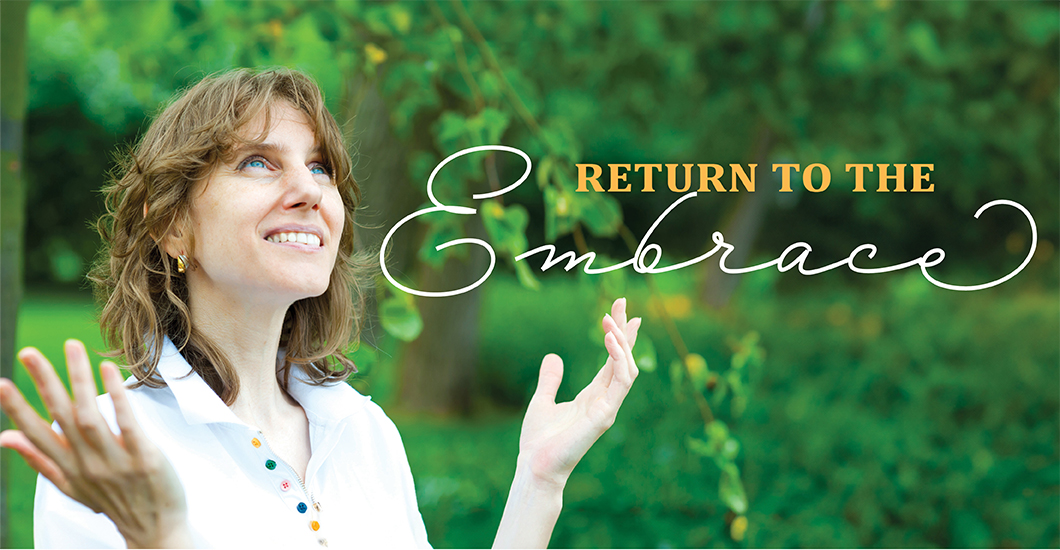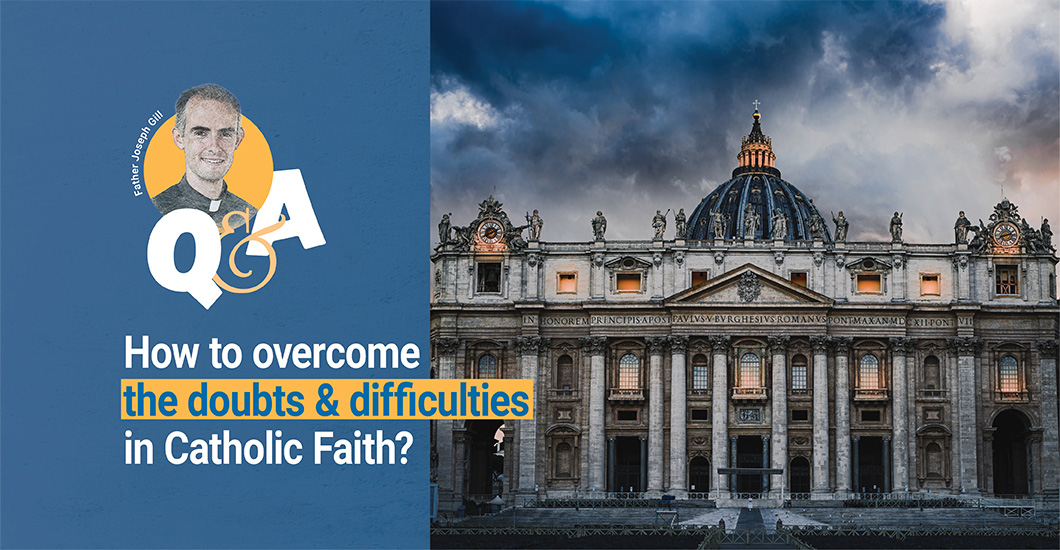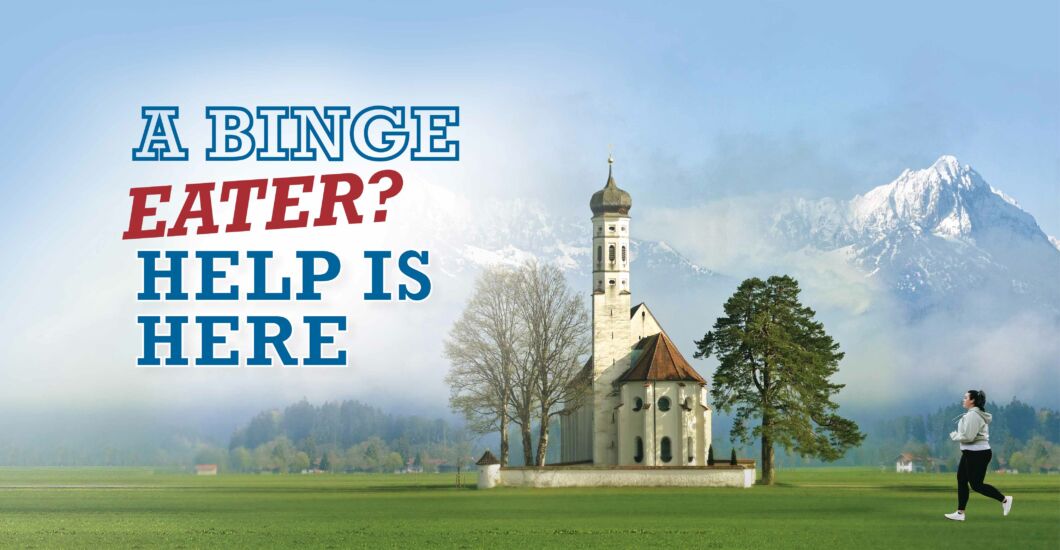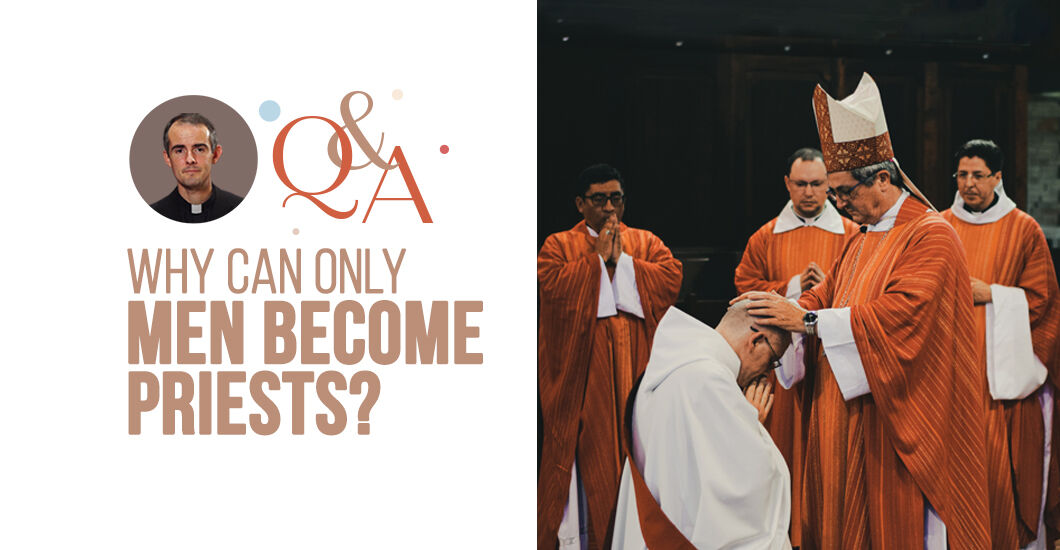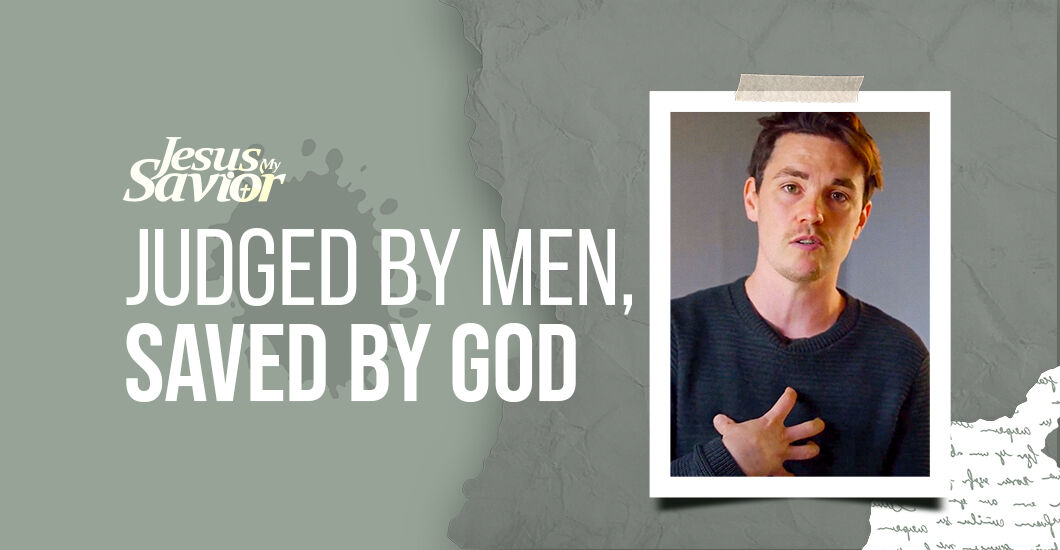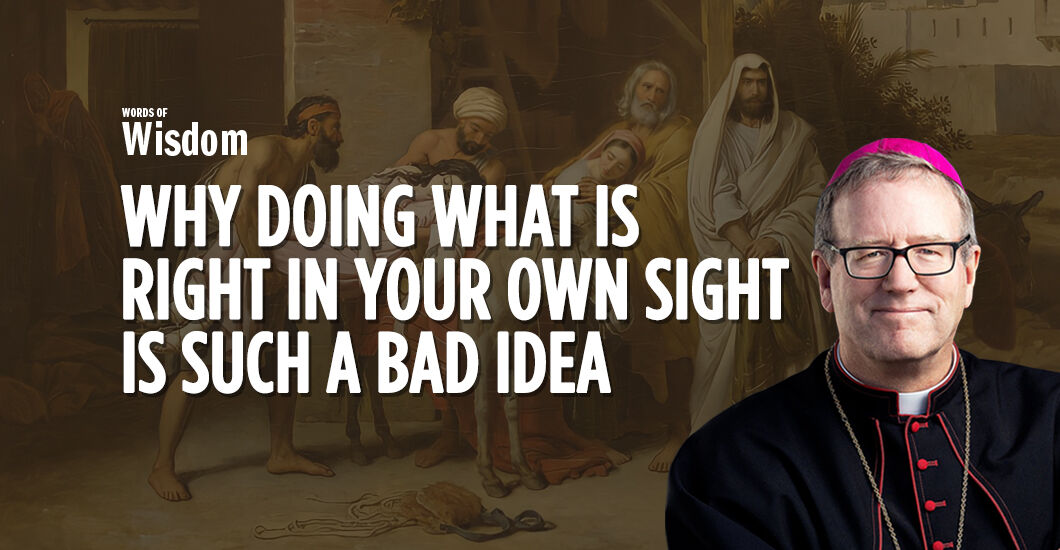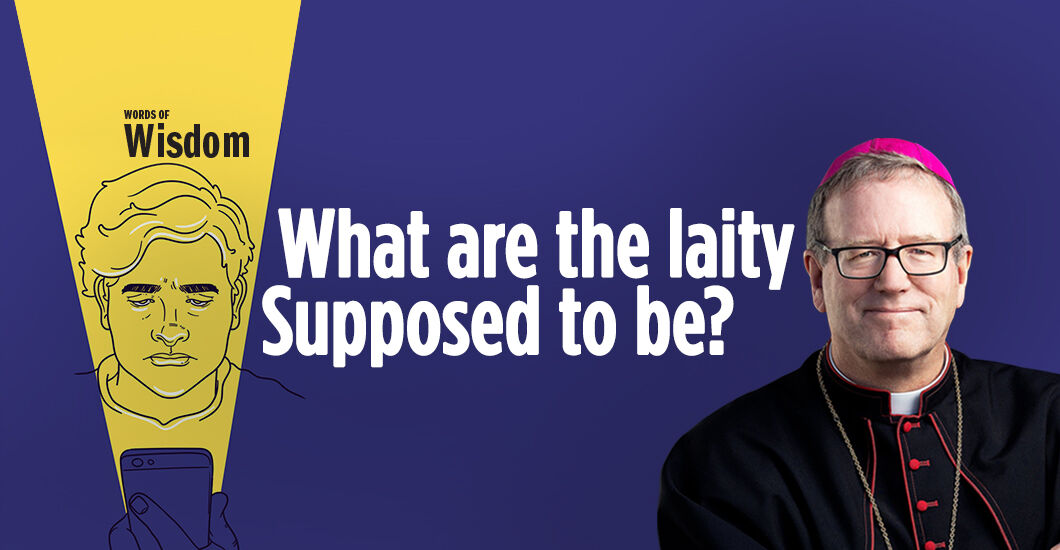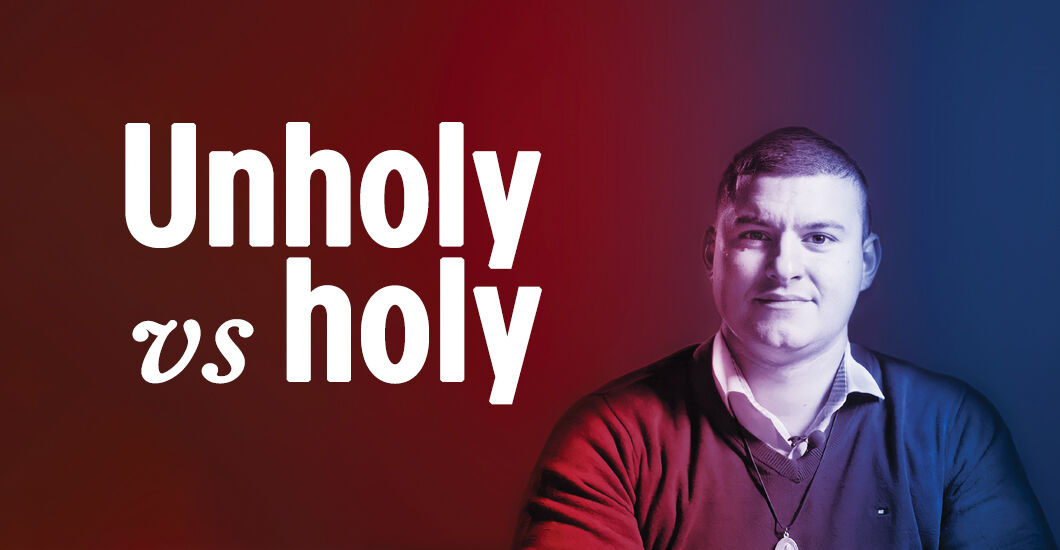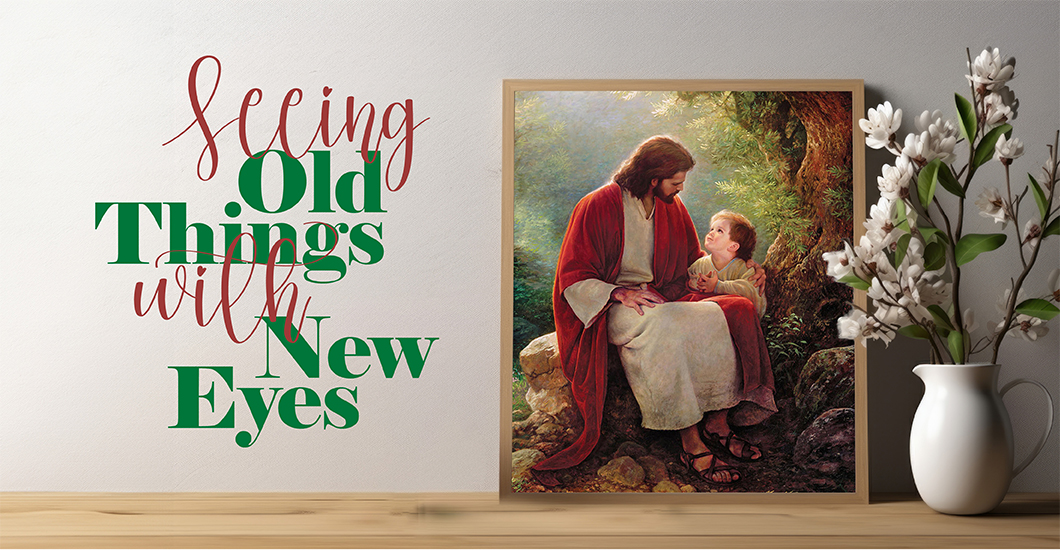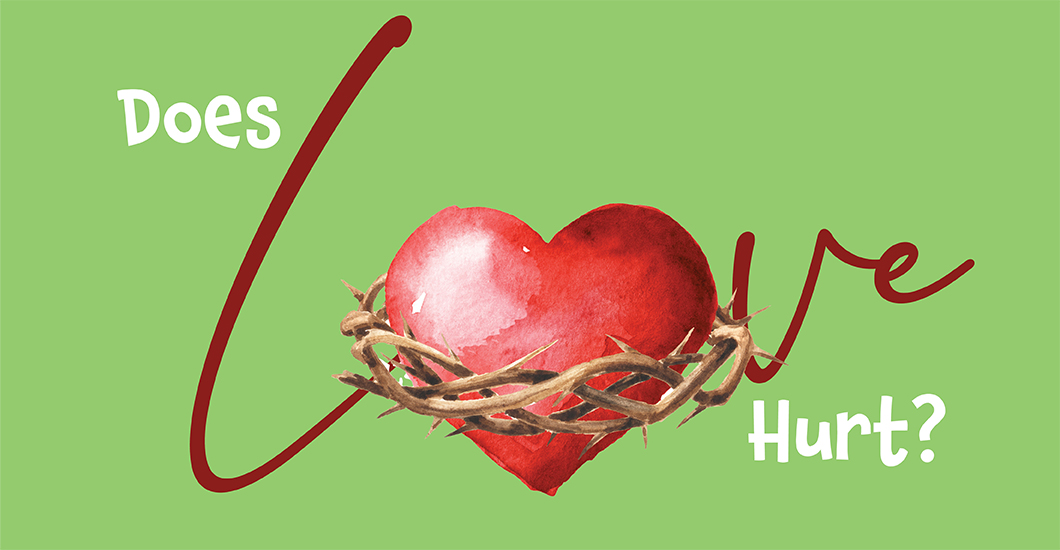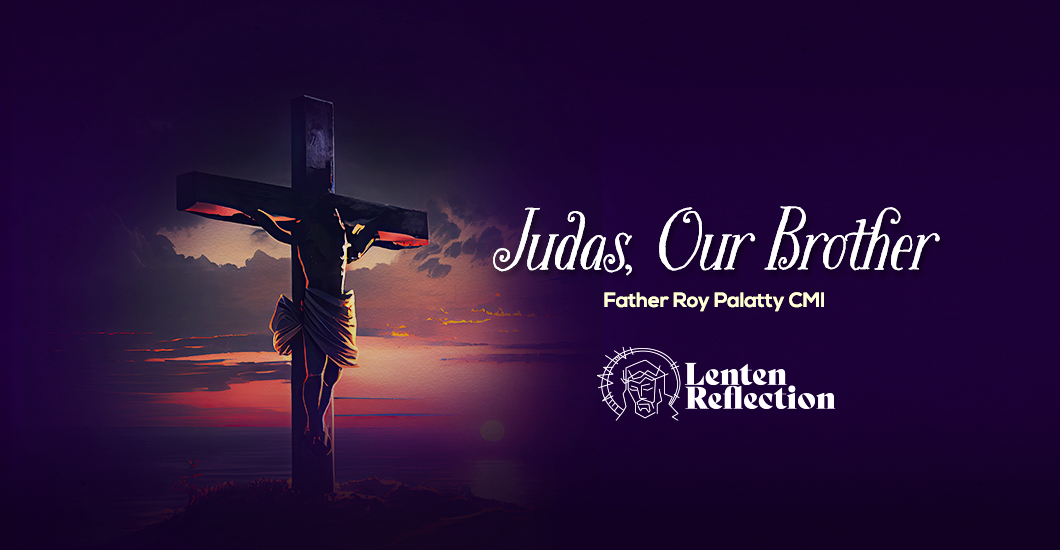Trending Articles
Q&A : Finding Peace Amidst Corona
Question: This virus crisis has made me realize how short my life is, and now I am beginning to worry—to worry about getting sick, and to fear death. How can I be at peace when I never know if I will get sick from the coronavirus?
Answer: Every news outlet has been covering the coronavirus epidemic with regularity. It is hard to avoid the news of this disease—it is literally everywhere. Even the Church has had to get involved—the entire country closed public Masses for several months earlier this year. I have even seen a church with blessed hand sanitizer in the Holy Water fonts!
Caution is one thing, but panic is quite another. I think many people (and institutions!) have slipped into a panic-mode that is neither realistic, nor helpful at a time like this. Here are three things to remember as we all seek to stay healthy during this virus:
First, do not be afraid. This is one of the most often-repeated sayings in the Bible. In fact, it is said that the phrase “Do not be afraid” appears 365 times in the Bible—one for each day of the year, because we need to hear it every day.
Why should we not be afraid? Because God is in control. In our rationalistic, sciencebased culture, we tend to forget this—we think that the destiny of the human race is in our hands. On the contrary—God is in control, and His will always prevails. If it is His will that we contract this disease, we must surrender our will to His. Yes, take precautionary measures, but in our hearts we must not forget that our lives are in His hands. He is a good Father Who does not abandon His children, but orchestrates everything for our good. Yes, “all things work for good for those who love God”—all things includes coronavirus.
Second, as a Christian we must reckon with the fact that all of us will die. It says in Scripture (Romans 14:8) that “if we live, we live for the Lord, and if we die, we die for the Lord; so then, whether we live or die, we are the Lord’s.” We sometimes think that we can avoid death forever, but we cannot. Our lives are not ours to own and cling to – they have been given to us by the Lord, on loan, and we will have to return them to Jesus one way or another. What peace there is when we recognize that we will someday return these gifts back to the Father!
As the Christian writer John Eldridge once said, “The most powerful man on earth is the one who has reckoned with his own death.” In other words, if you do not fear death, then you are unstoppable. In the same way, once Christians accept the fact that their lives are not their own, that we will have to come to God one way or another, this liberates us from the need to fear death. It frees us from our frantic grasping at life, as if this physical life were the most important thing to protect and preserve. Yes, life is a gift, and we should go to great lengths to protect it. But the gift of life is not absolute—we must all give that gift back to the Lord at some point. Whether it is coronavirus or cancer, a car wreck or old age, we all must die. Christians keep their gaze fixed on eternity, where life will never end.
Finally, we must remember our duties to the sick. We have a duty not to abandon the sick—even if they are contagious. As Saint Charles Borromeo said during the plague of 1576, “Be ready to abandon this mortal life rather than the people committed to your care.” Recently, we celebrated the memorial of Saint Frances of Rome, who lived in the early 1440s during a time of great societal upheaval. She dedicated her life to the sick. Listen to the words of a contemporary of hers:
Many different diseases were rampant in Rome. Fatal diseases and plagues were everywhere, but the saint ignored the risk of contagion and displayed the deepest kindness toward the poor and needy. She would seek them out in their cottages and in public hospitals, and would refresh their thirst, smooth their beds, and bind their sores. The more disgusting and sickening the stench, the greater was the love and care with which she treated them. For thirty years Frances continued this service to the sick and the stranger… (“Life of Saint Frances of Rome” by Sr. Mary Magdalene Anguillaria).
We, too, ought to seek ways to take care of victims of this disease. Do not abandon those who have come down with it! It is our Christian duty, one of the Corporal Works of Mercy. Take precautions, of course, but if we happen to catch the virus from someone infected because we are serving them, it is a form of white martyrdom, love-in-action.
And finally, let us remind ourselves that all of this is in God’s hands. If it is His will that we stay healthy, we shall praise Him for it. If it is His will that we get sick, then we shall suffer well for Him. And if it is His will that we die from this virus, we commit our lives into His Hands.
So, yes, take caution, stay home if you are sick (you are not committing a sin if you miss Mass due to illness!), wash your hands and try to stay healthy. And leave the rest to God.
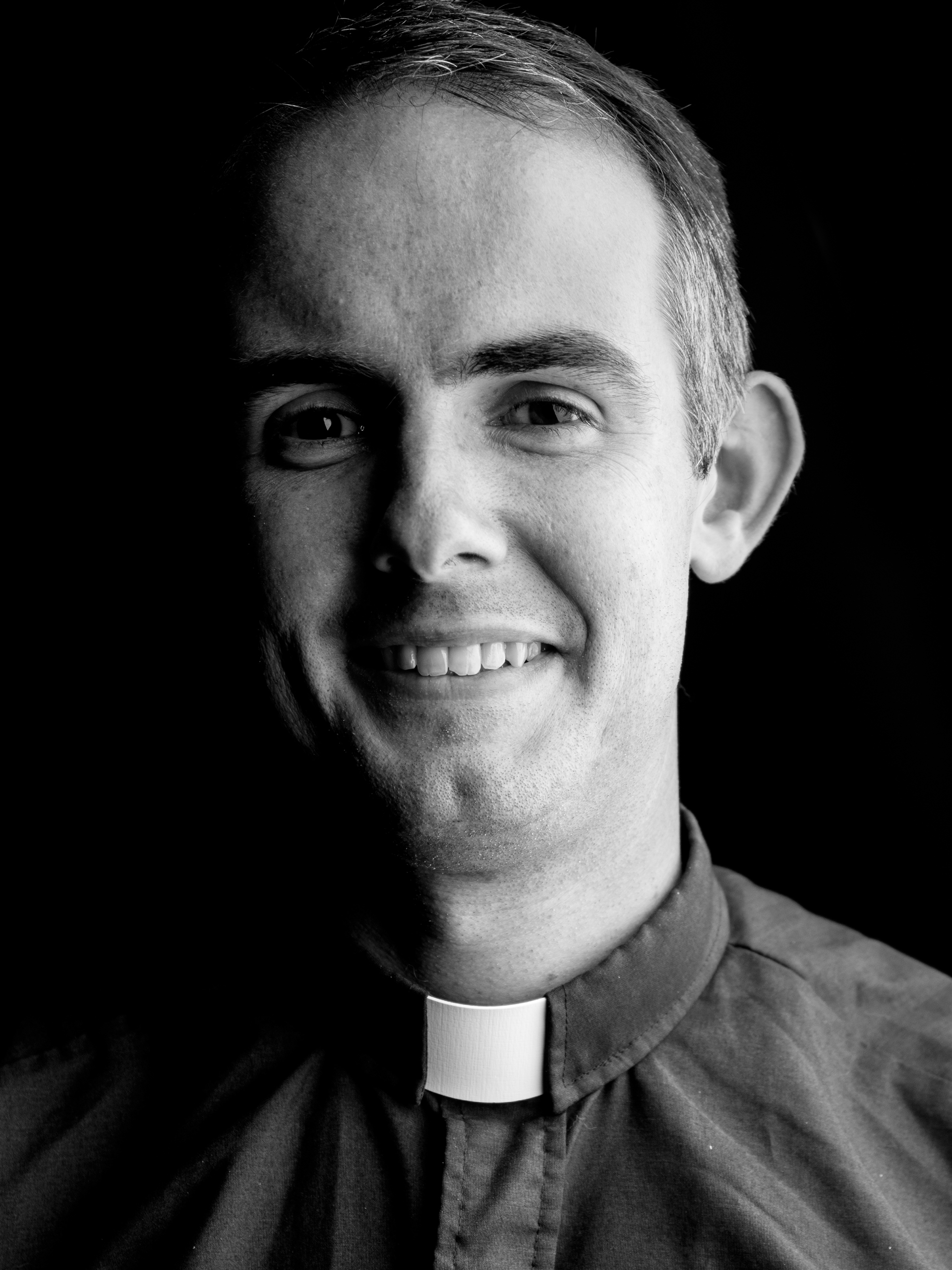
Father Joseph Gill is a high school chaplain and serves in parish ministry. He is a graduate from Franciscan University of Steubenville and Mount St. Mary’s Seminary. Father Gill has published several albums of Christian rock music (available on iTunes). His debut novel, “Days of Grace” is available on amazon.com.
Related Articles
Would my life ever return to normal? How can I possibly continue my work? Brooding over these, a terrible solution popped into my head… I was finding life extremely stressful. In my fifth year at college, the onset of bipolar disorder was hindering my efforts to complete my teaching degree. I had no diagnosis yet, but I was plagued with insomnia, and I looked frazzled and unkempt, which impeded my prospects of employment as a teacher. Since I had strong natural tendencies toward perfectionism, I felt so ashamed and feared that I was letting everyone down. I spiraled into anger, despondency, and depression. People were concerned about my decline and tried to help. I was even sent to the hospital by ambulance from the school, but doctors could find nothing wrong except elevated blood pressure. I prayed but found no consolation. Even Easter Mass—my favorite time—didn’t break the vicious cycle. Why wouldn’t Jesus help me? I felt so angry with Him. Finally, I just stopped praying. As this continued, day after day, month after month, I didn’t know what to do. Would my life ever return to normal? It seemed unlikely. As graduation approached, my fear increased. Teaching is a tough job with few breaks, and the students would need me to remain level-headed while dealing with their many needs and providing a good learning environment. How could I possibly do this in my current state? A terrible solution popped into my head: “You should just kill yourself.” Instead of casting off that thought and sending it straight back to hell where it belonged, I let it sit. It seemed like a simple, logical answer to my dilemma. I just wanted to be numb instead of under constant attack. To my utter regret, I chose despair. But, in what I expected to be my last moments, I thought of my family and the type of person I had once been. In genuine remorse, I raised my head to the heavens and said: “I’m so sorry, Jesus. Sorry for everything. Just give me what I deserve.” I thought those would be the last words I would utter in this life. But God had other plans. Listening to the Divine My mother was, by providence, praying the Divine Mercy Chaplet at that very moment. Suddenly, she heard the words loud and clear in her heart “Go find Ellen.” She obediently set aside her rosary beads and found me on the floor of the garage. She caught on quickly, exclaiming in horror: “What are you doing?!” while she pulled me into the house. My parents were heartbroken. There’s no rulebook for times such as these, but they decided to take me to Mass. I was totally broken, and I needed a Savior more than ever before. I longed for a come-to-Jesus moment, but I was convinced that I was the last person in the world He would ever want to see. I wanted to believe that Jesus is my Shepherd and would come after His lost sheep, but it was hard because nothing had changed. I was still consumed by intense self-hatred, oppressed by darkness. It was almost physically painful. During the preparation of the gifts, I broke down in tears. I had not cried for a really long time, but once I started, I couldn’t stop. I was at the end of my own strength, with no idea where to go next. But as I wept, the weight slowly lifted, and I felt myself enfolded in His Divine Mercy. I didn’t deserve it, but He gave me the gift of Himself, and I knew that He loved me the same at my lowest point as much as He loved me at my highest point. In Pursuit of Love In the days to come, I could barely face God, but He kept showing up and pursuing me in the little things. I re-established communication with Jesus with the aid of a Divine Mercy picture in our living room. I tried to talk, mostly complaining about the struggle and then feeling bad about it in light of the recent rescue. Weirdly, I thought I could hear a tender voice whispering: “Did you really think I would leave you to die? I love you. I will never forsake you. I promise to never leave you. All is forgiven. Trust in my mercy.” I wanted to believe this, but I couldn’t trust that it was true. I was growing discouraged at the walls I was erecting, but I kept chatting with Jesus: “How do I learn to trust You?” The answer surprised me. Where do you go when you feel no hope but have to go on living? When you feel totally unlovable, too proud to accept anything yet desperately wanting to be humble? In other words, where do you want to go when you want a full reconciliation with the Father, Son, and Holy Spirit but are too scared and disbelieving of a loving reception to find your way home? The answer is the Blessed Virgin Mary, Mother of God, and Queen of Heaven. While I was learning to trust, my awkward attempts did not displease Jesus. He was calling me closer, closer to His Sacred Heart, through His Blessed Mother. I fell in love with Him and His faithfulness. I could admit everything to Mary. Although I feared that I could not keep my promise to my earthly mother because, on my own, I was still barely mustering the will to live, my mother inspired me to consecrate my life to Mary, trusting that she would help me get through this. I didn’t know much about what that meant, but 33 Days to Morning Glory and Consoling the Heart of Jesus by Father Michael E. Gaitley, MIC, helped me understand. The Blessed Mother is always willing to be our intercessor, and she will never turn down a request from a child wanting to return to Jesus. As I went through the consecration, I resolved never to attempt suicide again with the words: “No matter what happens, I will not quit.” Meanwhile, I started taking long walks on the beach while I talked with God the Father and meditated on the parable of the prodigal son. I tried to put myself in the shoes of the prodigal son, but it took me some time to get close to God the Father. First, I imagined Him at a distance, then walking toward me. Another day, I pictured Him running towards me even though it made Him look ridiculous to His friends and neighbors. Finally, the day came when I could picture myself in the arms of the Father, then being welcomed not just to His home but to my seat at the family table. As I envisaged Him pulling out a chair for me, I was no longer a headstrong young woman but a 10-year-old girl with ridiculous glasses and a bob haircut. When I accepted the Father’s love for me, I became like a little child again, living in the present moment and trusting Him completely. I fell in love with God and His faithfulness. My Good Shepherd has saved me from the prison of fear and anger, continuing to lead me along the safe path and carrying me when I falter. Now, I want to share my story so that everyone can know God’s goodness and love. His Sacred Heart is welling up with tender love and mercy just for you. He wants to love you lavishly, and I encourage you to welcome Him without fear. He will never abandon you or let you down. Step into His light and come home.
By: Ellen Wilson
MoreI lost my iPhone a year ago. At first, it felt like a limb was amputated. I had owned one for thirteen years, and it was like an extension of myself. In the beginning days, I used the “new iPhone” like a phone, but it soon became an alarm clock, a calculator, the news, weather, banking, and much more…and then…it was gone. As I was forced into detox, I had many pressing problems. My shopping lists now needed to be written on paper. An alarm clock was purchased, and a calculator. I missed the daily ‘ping’ of messages and the scramble to open them (and the feeling of being wanted). But I was sensing the peace of not having this little piece of metal dominating my life. I hadn’t realized how demanding and controlling the device was until it was gone. The world didn’t stop. I just had to relearn new-old ways of interacting with the world, like talking to people face to face and making plans for events. I wasn’t in a hurry to replace it. In fact, its demise led to a welcome revolution in my life. I started experimenting with minimal media in my life. No newspapers, magazines, radio, television, or phone. I kept an iPad for work emails, selected YouTube videos on the weekend, and a few independent news pages. It was an experiment but one that has left me feeling calm and peaceful, enabling me to use my time for prayer and Scripture. I could now cling to God more easily, who is “the same, yesterday, and today and forever” (Hebrews 13:8). The First Commandment asks us to “love the Lord your God with all Your heart and mind and soul and love your neighbor as yourself” (Mark 12:30-31). I wonder how we can do that when our mind is on our phones for most of the day! Do we truly love God with our minds? Romans 12:2 says: “Do not conform to the pattern of this world but be transformed by the renewing of your mind.” I challenge you to abstain from the media, even for a little while and even for a little bit. Feel that transforming difference in your life. Only when we give ourselves a break will we be able to love the Lord our God with renewed minds.
By: Jacinta Heley
MoreQ: I disagree with some of the teachings of the Catholic Church. Am I still a good Catholic if I don’t agree with everything? A: The Church is more than just a human institution—it is both human and divine. It does not have any authority on its own to teach anything at all. Rather, the role of the Church is to teach faithfully what Christ taught on earth: to authentically interpret the Scriptures and to hand on the Apostolic Tradition that has come down to us from the Apostles themselves. The word “Tradition” comes from the Latin word “traditio”, meaning “to hand over.” We make the distinction, however, between Tradition (with a Big T) and traditions (with a little t). Tradition (Big T) is the unchanging, everlasting teaching of the Church, which has its roots in the Apostles and Christ. Examples of this include the fact that only wheat bread and grape wine can be used for Holy Eucharist; only men can become priests; certain moral actions are always and everywhere wrong; etc. Little-t traditions are man-made traditions that are changeable, such as abstaining from meat on Fridays (this has changed in the course of the Church’s history), receiving Communion on the hand, etc. People of goodwill are allowed to have various opinions about pastoral practices, disciplines of the Church, and other traditions that are “little-t” traditions that came from human beings. However, when it comes to Apostolic Tradition (big-T), to be a good Catholic means that we must accept it as coming from Christ through the Apostles. Another distinction needs to be made, though: there is a difference between doubt and difficulty. A “difficulty” means that we struggle to understand why the Church teaches a specific thing, but a difficulty means that we accept it in humility and seek to find the answer. After all, faith is not blind! The medieval theologians had a phrase: Fides Quaerens Intellectum—Faith Seeking Understanding. We ought to ask questions and seek to understand the Faith we believe in! By contrast, a doubt says, “Because I don’t understand, I will not believe!” While difficulties stem from humility, doubt stems from pride—we think that we need to understand everything before we believe it. But let’s be honest—are any of us able to understand mysteries like the Trinity? Do we really think we are wiser than Saint Augustine, Saint Thomas Aquinas, and all of the Saints and Mystics of the Catholic Church? Do we think that the constant 2,000-year-old Tradition, which was handed down from the Apostles, is somehow in error? If we find a teaching that we grapple with, keep grappling—but do so with humility and recognize that our minds are limited and we often need to be taught! Seek, and you will find—read the Catechism or the Church Fathers, the Encyclicals of the Popes, or other solid Catholic materials. Seek out a holy priest to ask your questions. And never forget that everything the Church teaches is for your happiness! The Church’s teachings are not meant to make us miserable but rather to show us the way to genuine freedom and joy—which can only be found in a vibrant life of holiness in Jesus Christ!
By: Father Joseph Gill
MoreQ – I am always overwhelmed with anxiety—about my family, my health, my financial situation, my job. I even feel anxious about whether or not I am saved. How can I find peace of heart among so many fears? A – It is significant that the phrase “Be not afraid” occurs 365 times in the Bible—one for each day of the year! God knew that we would need daily reminders that He is in charge and that we can lay our fears upon Him! It can be hard to believe that every circumstance of our lives is already in the hands of an all-loving God. But when we look at God’s faithfulness and not our problems, suddenly, we realize how he can bring good out of everything. For example, read the Scriptures and see how God was faithful to the great heroes of the Bible! In the Old Testament, Joseph was sold into slavery in Egypt and then thrown into prison. But God turned this tragedy into an opportunity first for Joseph to rise in the government of Egypt and then for him to save his family when famine struck the land. Or, in the New Testament, Paul was imprisoned, and his life was threatened several times, but each time, God rescued him from his enemies. Look at the lives of the saints – did God ever abandon them? Think of St. John Bosco – many people sought the life of this holy priest, but each time God miraculously provided a special guardian—a big gray dog that would appear on the scene to protect him! Think of St. Francis, who was captured in battle and imprisoned for a year – and that year became his conversion experience. Think of Bl. Carlo Acutis, the young teen who died of leukemia in 2006 at age 15 and how God has brought great good from that early death, as millions have been inspired to holiness by his story and example. I can tell you that my most difficult moment – when I was kicked out of school and told to abandon my plans for the priesthood – ended up being one of the most graced and blessed experiences of my life, as it opened the door to priesthood in another, better diocese where I can use my gifts and talents for His glory. It was only with hindsight that I recognized God’s intervention in my life. But the ways God has kept me safe and brought me closer to him in the past gives me confidence that he who was faithful then will be faithful in the future. And now, turn to your own life. How have you seen God come through for you? Focus on the promises God made in Scripture. He never promised us an easy life – he promised he would never abandon us. He promised that “no eye can see and no ear can hear what God has prepared for those who love Him.” He never promised that life would always go smoothly, but he promised that “all things work for good for those who love God” (Romans 8:28) These are promises we can build our lives upon! Finally, pray the Litany of Trust. The Sisters of Life in New York wrote this beautiful litany which invites us to surrender our anxieties to God. It says, in part: From anxiety about the future, deliver me, Jesus. From the restless self-seeking in the present moment, deliver me, Jesus. From disbelief in Your love and Your presence, deliver me, Jesus. Pray continually the brief prayer: Jesus, I trust in You! And He can fill your heart with a peace that surpasses all understanding.
By: Father Joseph Gill
MoreOverwhelmed by the uncertainties in life? Take heart. I was once there too—but Jesus showed me a way through I was thirty-something, strolling through downtown in the dress I loved, an airy sky-blue print. Its shape flattered me I thought, so I wore it often. Without warning I suddenly glimpsed my reflection in a store window. Revolted, I tried to suck in my gut. It wouldn’t suck. It had nowhere to go. Bulges everywhere. Beneath the hem, my legs were hams. I loathed myself. Carefree My eating and weight were skyrocketing out of control; and beyond that, my entire life was a train wreck. Divorce had recently shredded my brief marriage. Externally I pretended everything was fine, but inside I was shattered. Isolating behind walls of fat, I shared my anguish with no one. To numb my pain, I drank alcohol, worked, and ate—excessively. Successive dieting attempts only plummeted me into another cycle of obsession, self-pity, and compulsive binging. And, beneath all that rubble, spiritual problems festered. I still called myself Catholic, but I lived like an atheist. To me, God was ‘up there’ all right, but far away and caring nothing about my miseries. Why should I trust Him in the slightest? I showed up at Sunday Mass only when visiting my parents, to deceive them into believing I practiced faithfully. In truth, I bulldozed through my days with no thought of God and went ahead doing whatever I pleased. But the chilling memory of my reflection in that window haunted me. A new restlessness gripped my soul. Change was needed, but what? I had no idea. Nor did I have any idea that God Himself was moving in that moment, beginning to expose the ache in my heart with His gentle fingers. Contending with Goliath A woman at work expressed discouragement about her eating and weight, and we connected. One day she mentioned a twelve-step group she’d begun attending. The group asserted that because disordered eating is related to our emotional and spiritual lives, losing weight and keeping it off needs to address these components as well. This integrated approach appealed to me. Despite my scorn for groups, I tried some meetings. Soon hooked, I attended regularly, and though I rarely spoke up in the meetings, afterwards I would experiment with some of the ideas I heard. This approach worked somewhat, and after a few months I was elated when my weight began to drop. However—though I admitted this to no one—I was contending with a vicious Goliath, one which threatened to destroy my progress. While at work each day, I followed a food plan that allowed me to eat moderately and to minimize temptations. But by 5:00 p.m. each day I was famished. I’d rush home and fly into a rampage, stuffing my face nonstop until I collapsed into bed. Powerless over this beast, and terrified that pounds would soon be piling on, I was disgusted with myself. What was I to do? I hadn’t a clue. The bleak pattern dragged on, and hopelessness gripped me. An Idea Popped Up Then unexpectedly the most outlandish thought popped into my head. Instead of going straight home from work, I could hit the 5:15 p.m. Mass. That would at least postpone my binge and reduce its duration by one hour. At first this idea seemed pathetic. Wasn’t it stop-gap and preposterous? But, with no other options in sight, desperation prompted me to try it. Soon I was attending Mass and receiving Holy Communion daily. My one goal was to reduce my binging. Apparently, that was enough for Jesus. Truly present in His Body and Blood, He was waiting for me there, and glad to have me back. Only much later did I realize that He had an agenda in all this too: one unfathomably higher, wider, and deeper than my own. He knew precisely what I needed and how to provide it. With tender care, he used my despair to draw my faltering feet onto solid ground and began what would be a lengthy process of healing my heart and connecting it with his own. At Mass each day, feeding me His very own Body and Blood, He began to remedy my ills, bathe me in supernatural graces, radiate light into my darkness, and equip me to combat evils that threatened me. Freedom at Last His Eucharistic graces ignited and invigorated me, and I upped my program participation to a new level. Earlier I had dabbled; now I jumped in with both feet, and as the days passed, I found two gifts which proved to be indispensable: a supportive community that stuck with me through good days and bad, and an arsenal of practical strategies. Without these, I would have lost heart and given up. But instead—over a long period, as I learned to let Jesus be for me the Savior He had died to be, as my twelve-step friendships enriched and strengthened me, and as I employed the tools and wisdom I was given, I found freedom from my disordered eating and a stable and lasting recovery plan which continues to this day. In this process, faith that was once only in my head shifted to my heart, and my false image of a remote uncaring God crumbled to smithereens. Jesus, Blessed Savior who continues to draw me closer to Himself, turned so much of my bitter into sweet. To this day, as I cooperate, He continues to transform other pits and waste lands that prevent me from flourishing. What about you? What impossible hurdles are you facing today? Whether you are troubled about your eating, anguished about a loved one who has left the faith, or crushed by other burdens, take heart. Embrace Jesus in the Holy Eucharist and in adoration. He is waiting for you. Bring your ache, your bitterness, your messes to Him. He yearns to come to your aid just as He rescued me in all my distress. No problem is too great or too little to bring to Him.
By: Margaret Ann Stimatz
MoreQ – Why is it that only men can become priests? Doesn’t that discriminate against women? A – A body has many parts, each of which has a unique role to play. An ear cannot be a foot, nor should an eye desire to become a hand. For the whole body to function well, each part has a critical role to play. Similarly in the Body of Christ (the Church), there are many different and beautiful complementary roles to play! Not every person is called to be a priest, but all are called to be saints in their own specific vocation. The priesthood has been reserved to men for several reasons. First, Jesus Himself chose only men to be His Apostles. This is not just due to the culture of the times, as some have claimed. Jesus often broke cultural norms in His relationships with women—He bantered with the Samaritan woman, He welcomed women into His entourage, He chose them to be the first to witness the Resurrection. Jesus bestowed a remarkable dignity and honor upon women, treating them asequals—but He did not choose them for the unique role of Apostle. Even His own mother Mary, who was holier and more loyal than all of the other Apostles, was not selected as an Apostle. The Apostleswere the first bishops, and all priests and bishops can trace their spiritual lineage to the Apostles. A second reason is because when a priest celebrates the Sacraments, he is standing “in persona Christi” (in the person of Christ). A priest does not say, “This is Christ’s Body”—no, he says, “This is MY Body”. He does not say “Christ absolves you” but rather, “I absolve you.” It makes me tremble, as a priest, to take these words of Christ as my own! But as the priest stands in the person of Christ the Bridegroom, giving of himself to His Bride (the Church), it is fitting that a priest be a male. A final reason is because of the order of creation. We first see God create rocks and stars and other inanimate objects. No big deal. Then God creates plants—we have life! Then God creates animals—life that moves and is conscious! Then God creates man—life that is in His image and likeness! But God is not yet finished. The highpoint of His creation is woman—the perfect reflection of God’s beauty, tenderness, and love. Only a woman can bring forth life as God does; a woman is created to be relational, as God loves relationship. So, one can state that woman is the pinnacle of God’s creation. The vocation of priesthood is centered around service and laying down one’s life for the flock. Therefore,it would not be appropriate for womento serve men, but rather for men to serve women. Men are created to defend, protect, and provide for others—the priesthood is one way in which he lives out that calling, as he defends and protects souls from the Evil One, and provides for the Church through the Sacraments. A priest should be laying down his life for the souls entrusted to his care! It is a modern error to think that leadership equals power and oppression. Because of original sin, we often see people abuse leadership roles, but in the Kingdom of God, to lead is to serve. In this light, priesthood is a calling to sacrifice, to imitate Christ even to the Cross. It is a uniquely masculine role. Thisin no way means that women are second-class citizens in the Church! Rather, their calling is equal but different. Many heroic women have given their lives for Christ as martyrs, virgins, consecrated religious, missionaries, leaders—in a uniquely feminine way, bearing spiritual life, nurturing relationships, uniting themselves to Christ the Bridegroom. What a beautiful thing it is to have such a wide variety of different but complementary vocations in the Church!
By: Father Joseph Gill
MoreAt a very young age Keith Kelly began drinking and experimenting with drugs. He led a dangerous lifestyle until one black night he saw the eyes of evil staring at him Growing up was quite difficult for me and my siblings as my father was an alcoholic and my relationship with him was just non-existent. We all responded to dad’s alcoholism in different ways. My way was to suppress anger and frustration at our situation. To cope with these feelings, I began drinking at a very young age and went on to experiment with drugs. I became very rebellious against all forms of authority, so I had regular conflicts with the law enforcement in Westport and got expelled from secondary school. During that time I started to feel a dark presence around me quite regularly. At the beginning I didn’t really know what was going on. I had an innate sense that this was something demonic or evil, but wasn’t able to fully articulate it. I then began to have episodes at night: waking up paralysed and dripping with sweat. I could feel a dark presence in my room which was very frightening. I felt suffocated by this presence and battled to be free of it. One night I woke up everyone by incessantly screaming. Word by Word All these demonic manifestations culminated in a very scary incident one night in my bathroom when I looked in the mirror and saw the devil inside me. It is very hard to put into words what I saw. It was a really hideous and beastly form of myself. I could hear him saying, ‘Your life is finished, your life is over, now I have you… I’m gonna destroy you.’ I heard voices regularly and there were a lot of threats being directed against me. These strange experiences often reduced me to tears of desperation. One day, God gave me the grace to fall to my knees. Though I didn’t know who God was or what faith was about, I had learned the Our Father, and Hail Mary when I attended a Catholic school. So I just started praying the Our Father word by word. There’s always a temptation for prayers to become mechanical and disconnected from the heart. That day I meant every word of that prayer and it was truly a cry to God the Father. I called to Him with all my heart, begging Him to please deliver me. Halfway through the Our Father, I felt another presence in the room…the presence of God, the presence of my Lord and God, the presence of my Heavenly Father. His presence physically removed this evil presence from my bedroom. I remember just lying on the ground, weeping in gratitude and I knew with certainty from that moment that God was truly my father. A divine peace swept over me that was so tangible, I could feel it. I’ve never felt anything similar to it since. I just lay there and wept with relief and joy. Ultimatum Years later in my walk with God I learned that the Our Father is a deliverance prayer. It ends with ‘..deliver us from evil. Amen’ and this prayer is in the official exorcism ritual of the Church. The ‘Our Father’ is prayed to deliver the victim from possession or demonic manifestations. I didn’t know this at the time. From that moment when I was 16 or 17, I started praying for help. Every night, I would pray a few prayers asking for help to give up the drugs, to stop drinking, and to get my life back in order because I had a court case coming up. I was charged with 11 offenses and my solicitor was very frank, “You’re looking at a prison sentence.” During that time my father actually became sober. He was able to conquer his alcohol addiction through the Alcoholics Anonymous program. To help facilitate his recovery, he had a sponsor, Jim Brown who had escaped alcohol addiction after a deep faith experience. Since then he was taking groups of people to Medjugorje. My father asked Jim to bring me to Medjugorje. Jim told my dad to start praying a decade of the Rosary for me every night . Though Jim was hesitant because he knew I had a bad name, he gave me a chance. We went during the 2005 Easter season but I was just drinking, looking for girls, not really kind of participating in any of the activities. On the third day, I climbed the hill which is allegedly the place where Mary first appeared to the six visionaries. Lot of people have strong conversion experiences up there, but I didn’t know this at the time. I didn’t know what I was doing, but I had an encounter with the living God. I was given the gift of faith. I suddenly had no doubts. I knew that God existed and I fell in love with Our Lady. I felt unconditionally loved for who I was, so I came down that mountain as a different person. Someone in the group said to me years later, “You were different when you came down from that mountain, you were able to maintain eye contact, you were free and comfortable with yourself. You seemed more joyful without that heavy heartedness.” She noticed a transformation in me. I came back to the sacraments on the eve of the Divine Mercy Sunday, the day St John Paul II died, I was like the prodigal son, coming back to God, the father. Thrown Back Two weeks after coming back from Medjugorje, I had that court case. I had just turned 18 which meant that I had to go on stand and defend myself. So it was quite intimidating. There were three guards, two detectives, the superintendent, the judge, my parents, my solicitor and a couple of journalists. Whenever I opened my mouth to tell my story, the guards would interrupt saying, “This guy is an absolute menace to society, he needs to be locked up, he’s very disruptive and we’ve had multiple incidents with him.” They kept interrupting me, so I couldn’t get into any rhythm. I was very nervous but there were a lot of people praying for me. Suddenly the unexpected happened. The judge, Mary Devons pointed at the guards and told them, “I’ve had enough. Get out of my courtroom”. They were completely stunned. After they left, she just turned to me and said, “Right, just tell me your story.” I simply told her about how I went to this place called Medjugorje and about my experiences there. Tears sprang to my eyes as I declared with sincerity, “I just really believe God’s going to change my life around.” She looked me in the eye and said, “I’m going to give you a second chance.” I was given a suspended sentence, 200 hours of community service and a nine o’clock curfew for a year. That was it! That was the lifeline I needed and I took it. Looking back, and spiritually analyzing what had happened, I feel that God was my judge. It was He who saw the sincerity in my heart and intervened. Judge Mary Devons was just the instrument of His mercy. It was powerful. That was my deliverance. And I never looked back. I realized that my life was a gift and everyone’s life is a gift. We haven’t done anything to warrant our existence. God has gratuitously given it to us. I began to delve deeper into my faith, studying the Bible and reading the lives of Saints. In 2000, I started taking groups of young people to Medjugorje. Recently, I heard a priest answer the question, “What’s the sign of conversion?” He replied that it’s the desire to evangelize. If you have had an encounter with the living God, you can’t keep it to yourself but share it. And I wanted to share it as I was set on fire with love of God. And that for me is a real gift. Faith is a response to the self revelation of God and not only the self revelation of God, the God who died for us, who purchased us with his own blood. I want to reciprocate that love, which God expressed for me, on the Cross. There’s a scripture that has always spoken to my heart. “Seek first, the kingdom of God and His righteousness and everything else will be added unto you.” So if you put God first, everything else will fall into place. We cannot outdo God in generosity. That’s my experience of God. If you give God a millimeter, He will give you the universe. So whatever we give God, like the loaves and the fishes, He’ll multiply it. You can’t outdo Him in generosity. Often, young people have got this preconceived idea that following God equates to giving up everything so life turns dull and boring. But it’s just the opposite. Saint Augustine says, “To fall in love with God is the greatest romance, to seek him the greatest adventure and to find him the greatest human achievement.” So it’s an adventure. My walk with God has just been this incredible adventure. So don’t be afraid to respond to God’s initiative.
By: Keith Kelly
MoreWhat does the Bible think about our current cultural fascination with finding our own voices, setting our own agenda, doing things according to our own lights? (By the way, if you doubt that this attitude is dominant today, I would invite you to watch practically any movie, listen to practically any popular song, or read practically anyone’s latest blog or Facebook posting). Is the Bible for or against this ego-dramatic approach to life? Might I suggest we look at the close of the book of Judges, a text marked by enough murder, mayhem, and miscreancy to put Martin Scorsese or Quentin Tarantino to shame. After the death of Samson, the last of the judges of Israel, the tribes, we are told, drifted into disunity and commenced to manifest shocking violence to one another. The most remarkable and frankly sickening story, again in a book filled with such stories, concerns the outrage at Gibeah. We hear of a man from Ephraim in the north who had taken a concubine from Bethlehem in the south. When the woman escaped and returned home, the man came after her and took her back into his possession. He then set out with her and came to the town of Gibeah. We are told that “scoundrels” from the city that night surrounded the house. Exactly duplicating the infamous tale from the book of Genesis, the mob shouted to the owner of the place: “Bring out the man who has come into your house, so that we may get intimate with him.” With astonishing moral turpitude, the owner of the abode replied, “Do not commit this terrible crime. Instead, let me bring out my virgin daughter and this man’s concubine. Humiliate them or do whatever you want; but against him do not commit such a terrible crime.” At that, they shoved the concubine outside, and the men, we are blithely informed, “raped her and abused her all night until morning.” Utterly indifferent to her suffering and humiliation, the man placed her, next morning, on his beast of burden and commenced the journey to Ephraim. When he arrived home, “he got a knife and took hold of the body of the woman, cut her up into twelve pieces, which he then sent throughout the territory of Israel. Was she dead when he found her that morning? Did she die on the way? Did he kill her? We’re not told, which only adds to the horror of the narrative. When the gruesome message was received across the nation of Israel, the elders assembled an army and attacked the city of Gibeah, effecting a general slaughter of the people. Now, why do I rehearse this awful tale? Though there is a good deal of competition for the distinction, I believe that this gruesome and cruel episode represents the low point of human behavior described in the Bible. We have cruelty, crude physical violence, utter disregard of human dignity, sexual immorality, rape, cooperation with sexual abuse of the worst kind, murder, mutilation, and genocide. As an aside, I am always slightly amused when some Christians primly criticize me for watching, and in some cases recommending, films in which violence and immorality are on vivid display. I wonder, “Have they ever even read the Bible?” If the Bible were depicted honestly in film, the movie would receive at least an “R” rating. One of the great virtues of the Scriptures is that they are brutally honest about human beings and the myriad ways that we go wrong, the thousands of bad paths down which we walk. Another virtue of the Bible is that its authors know precisely where all this dysfunction comes from. The book of Judges clearly indicates that the moral chaos it describes is a function of the disappearance of anything like moral leadership among the people. When the judges faded away, the law was no longer taught and enforced, and hence the people wandered into appalling behavior. Rudderless and without a captain, the ship simply smashes into the rocks. The final line of the book of Judges sums up the spiritual situation: “In those days there was no king in Israel; everyone did what was right in their own sight.” I would not interpret this necessarily as an endorsement of kings in the political sense, but rather of leadership in the moral sense. A healthy society needs leaders—political, economic, cultural, religious, etc.—who are animated by a keen sense of objective moral value, who have risen above mere subjective self-interest. The scriptural authors knew that the strident assertion of one’s own private prerogatives, so on display today, is fundamentally adolescent and morally catastrophic for any human community. This is why the heroes of the Bible are never those who “find themselves,” but rather those who heed the voice of God and remain obedient to the mission that God has given them. Mind you, as is often the case, the Bible trades in exaggeration and overstatement in order to get our attention, similar to the method employed by Flannery O’Connor in her macabre stories. So the almost cartoonish violence displayed in Judges is meant as a warning to a society such as ours that is increasingly losing its moral bearings: you might not be there yet, but this is where the road that you have embarked upon is leading you. Next time you find yourself wondering why the world is in such a precarious state, call to mind the final lines of the book of Judges: “Everyone did what was right in their own sight.”
By: Bishop Robert Barron
MoreI like to watch old movies. Over the past several months, I’ve watched (or re-visited) a number of Alfred Hitchcock thrillers, some screwball comedies from the thirties and forties, and a couple of film-noir classics. Last week, over the course of three evenings, I managed to get through the three hours and forty minutes (yes, you read that correctly) of the Charlton Heston version of the Ten Commandments from 1956. With delight, I took in the still marvelous technicolor, the over-the-top costumes, the wonderfully corny faux-Shakespearean dialogue, and the hammy acting that is, one might say, so bad that it’s good. But what especially struck me was the sheer length of the film. Knowing that it required a rather extraordinary act of attention on the part of its audience, it is astonishing to remember that it was wildly popular, easily the most successful movie of its time. It is estimated that, adjusted for inflation, it earned a box office of roughly two billion dollars. Would moviegoers today, I wondered, ever be able to muster the patience required to make a film like the Ten Commandments equally popular today? I think the question answers itself. The coming together of daunting length and popularity then put me in mind of a number of other examples of this combination from cultural history. In the nineteenth-century, the novels of Charles Dickens were so sought after that ordinary Londoners waited in long lines for chapters as they were published in serial form. And let’s face it: not a lot happens in Dickens novels, by which I mean very few things blow up; there are no alien invasions; no snappy one-liners uttered by the heroes before they blow away the bad guys. For the most part, they consist of lengthy conversations among fascinating and quirky characters. Much the same can be said of the novels and stories of Dostoevsky. Though there is indeed a murder and a police investigation at the heart of the plot of The Brothers Karamazov, for the vast majority of that famous novel, Dostoevsky arranges various characters in drawing rooms for pages and pages and pages of dialogue on matters political, cultural, and religious. During that same period, Abraham Lincoln and Stephen Douglas engaged in a series of debates on the vexed issue of slavery in America. They spoke for hours at a time—and in an intellectually elevated manner. If you doubt me, look up the texts online. Their audiences were not cultural elites or students of political philosophy, but rather ordinary Illinois farmers, who stood in the mud, gave their full attention, and strained to hear the orators’ unamplified voices. Could you even begin to imagine an American crowd today willing to stand for a comparable length of time and listen to complex presentations on public policy—and for that matter, could you imagine any American politician willing or able to speak at Lincolnian length and depth? Once again, the questions answer themselves. Why this look back at modes and styles of communication from another age? Because by contrast ours seem so impoverished! I certainly understand the value of social media and I readily use them in my evangelical work, but at the same time, I am acutely aware of how they have lessened our attention span and capacity for sophisticated conversation and real advance toward the truth. Facebook, Instagram, YouTube, and especially Twitter specialize in flashy headlines, misleading titles, simplistic characterizations of an opponent’s position, sound bites in place of arguments, and mean-spirited rhetoric. Just dip into the comment boxes on any of these sites, and you’ll immediately see what I mean. A favorite technique on social media is to take a phrase or even a single word of a person’s argument, wrench it out of context, give it the worst possible interpretation, and then splash one’s outrage all over the internet. Everything has to be fast, easily digested, simple to understand, black and white—because we have to get clicks on our site, and it’s a dog-eat-dog world. What worries me is that an entire generation has come of age conditioned by this mode of communication and hence is largely incapable of summoning the patience and attention required for intelligent engagement of complex issues. I noticed this, by the way, in my nearly twenty years of teaching in the seminary. Over those two decades, it became increasingly difficult to get my students to read, say, a hundred pages of St. Augustine’s Confessions or of Plato’s Republic. Especially in more recent years, they would say, “Father, I just can’t concentrate that long.” Well, the auditors of the Lincoln-Douglas debates could, and so could the readers of Dickens, and so even could those who sat through The Ten Commandments sixty-some years ago. So as not to end on a down note, permit me to draw your attention to what I consider a real sign of hope. In just the last couple of years, there has been a trend in the direction of long-form podcasts that are attracting huge audiences of young people. Joe Rogan, who hosts one of the most popular shows in the country, speaks to his guests for upwards of three hours, and he gets millions of views. In the past year, I have appeared on two podcasts with Jordan Peterson, each one in excess of two hours and featuring pretty high-level discourse and both has reached just shy of one million views. Perhaps we’re turning a corner. Perhaps young people have tired of vituperative sound bites and superficial pseudo-intellectualism. To encourage this trend, I would like to invite all of you to use much less social media—and maybe pick up The Brothers Karamazov.
By: Bishop Robert Barron
MoreAddiction to porn led him to hate sexuality and God, but one night everything changed. Discover the salvific journey of Simon Carrington on breaking out of pornography I was very blessed to be raised in a Catholic home as the third born among six children. My Dad was a great spiritual leader. He led evening prayer at home and recited the Rosary every night before we went to bed. We went to St Margaret Mary’s parish, Merrylands on Sundays, serving on the altar and in the choir. So overall, God was central to my life. Craving for More When I was 15 years old, my grandmother passed away. I really missed her and would cry every night for months afterwards. The deep loneliness and pain that set in, led me to seek something that was going to make me feel loved. That’s when I began to seek out pornography. The more I watched, the more I craved. Slowly, my faith began to weaken. In School, I was still having fun, playing sports, and going to Church. Outwardly I was doing everything right as just part of the routine—going to Mass, praying the Rosary etcetera, but inside my faith was dying. My heart was elsewhere because I was living in sin. Although I was going to Confession, it was more out of fear of Hell than love of God. Turning Away On a visit to a family friend, I discovered a stash of porn magazines right next to the toilet. I will never forget picking up the first one and flipping through the whole magazine. It was the first real, physical and tangible porn I had ever seen. I felt so many emotions rushing through—excitement that this was the answer to the emptiness I felt, but also deep shame. This seemed to be the “food” that would satisfy the ache in my heart for love. I walked out of that bathroom a different person from that day. It was then that I subconsciously turned my back on God. I chose pornography and a life of impurity over Him. After that experience, I began buying porn magazines. Since I went to the gym every day, I found a crack in the wall there to store all these porn magazines. Every time I went to the gym, I would begin and end the session by going to the stash of magazines and flipping through for 20 or 30 minutes. That became my life for years. I became so obsessed by pornography that I almost lost my job taking toilet breaks every hour to look at porn. It took up every spare moment I had. Stone-cold I tried listening to different Catholic speakers and reading books on chastity and sexuality. I realized that all of them stated that sexuality was a gift from God, but I couldn’t understand this. The only thing sexuality brought me was pain and emptiness. To me, my sexuality was the furthest thing from a gift from God. It was a beast that was dragging me into Hell! I began to hate my sexuality and hate God. It became a poison in my heart. When my family prayed the Rosary, I could not say a Holy Mary. I was almost never in a state of grace. I went to Mass for months at a time without receiving the Eucharist. Even if I went to Confession after Mass, I could never seem to last until the next day. There was no love in my heart. When my mum would hug me I would tense up like a rock. I didn’t know how to receive love and affection. On the outside, I was always friendly and happy, but on the inside I was empty and dead. I remember coming into my room one day after just viewing pornography and I saw the crucifix on my wall. In a moment of anger I said to Jesus on the Cross, “How do you expect me to believe that sexuality is a gift from you? It is causing me so much pain and emptiness. You are a liar!” I leapt up onto my bunk bed and snatched the crucifix off the wall and smashed it over my knee. Looking at the smashed crucifix I blurted out in rage, “I hate you! You are a liar.” I then threw the crucifix in my bin. When My Jaw Hit the Floor Then one day, Mum told me to go to a chastity talk by Jason Evert with my older brother. I told her politely that I didn’t want to go, but thanks anyway. When she asked me again, I blurted out, “Mum, love isn’t real. I don’t believe in love!” Mum simply said, “You’re going!” That night I went reluctantly. I remember being amazed at how Jason spoke that night. One line changed my life. He said, “Porn is the surest way to shoot your future marriage in the head.” As soon as he said this, I realized that if I didn’t change my ways, I would be harming the woman I married because I didn’t know how to treat her properly. All the desires I once had for marriage resurfaced in me. I really did want love and marriage more than anything, but I had buried that desire with sexual sin. I got a chance that night to speak to Jason personally and the advice he gave changed my life. He said, “Look, there’s love in your heart and there’s all these temptations to lust. Whichever you choose to feed more will grow stronger and eventually overpower the other. Until now you have been feeding lust more than love, it’s time to start feeding love.” I knew God had touched me that night, and I decided I need a clean-start Confession. I booked a priest in for Confession and warned him it would be a long one! I made a general Confession that took about an hour and a half. I confessed every sexual sin I could possibly remember, the names of the porn stars I had watched, the number of times, the amount of hours and for how many years. I felt like a new man walking out of Confession that night. A Beautiful Discovery There began the third stage of change in my life. Though I still struggled with those sins of sexual impurity, I was in a constant fight. Little by little, I was able to experience greater freedom from sexual sin, and felt God calling me to begin really learning what His plan for human sexuality was, and start sharing it with others. I encountered speakers who unpacked Saint John Paul’s “Theology of the Body” and in the course of reading I was struck by this powerful thought: My body and every other body is a sacrament of God. I realized that I was the image of God and so was every woman. When I began to see every single person through this lens as a living sacrament of God, it became so much harder for me to use them sexually. If ever I were to lust after someone especially through masturbation and pornography, I would have to dehumanize them in my mind and in my heart. Armed with this new way of viewing myself and other women, I was empowered by the graces received from daily Mass and regular Confession to make a huge transformation. I began to look at every woman not for sexual pleasure but truly as a beautiful sacrament of God. I was so on fire with this new message that I wanted to share it with everyone I possibly could. At that time I was working as a fitness trainer at a gym, but I felt that God was calling me to leave that environment and serve Him more directly. I wasn’t sure where I was heading, but doors began to open. I got plugged into youth ministry and started working for Parousia Media, packing and posting faith resources. While I was working, I would listen to faith talks all day, learning my faith in a powerful way. I started speaking as a youth minister to high school students almost every weekend, and I fell in love with evangelizing. Love Like Never Before One day, a lady reached out to my office, looking for somebody who could speak to some young adults about chastity, and especially pornography. Out of nowhere, I told her that I would do it. I shared my testimony that night, and the response was very encouraging. By word of mouth, more and more people came to know me and my story and invitations to speak began rolling in. In the past 10 years I have given over 600 talks to over 30,000 people on the virtue of chastity, pure dating and the Theology of the Body. Through this ministry, I met my wife, Madeleine and we have been blessed with three children. God led us on a journey together to launch Fire Up Ministries, with a mission to invite every person to experience the love they always dreamed of! At this point in my life, I am blessed to experience a level of sexual freedom that I never had before. Whenever I thank God for where I am now, I recall the days when I was really struggling in this area. There were times when I felt there was no light at the end of the tunnel and cried out to God, “Is purity possible?” It seemed hopeless, and I thought I was doomed to live like this forever. But although there were dark patches in my life which I thought would never pass, God never stopped loving me. He worked with me patiently and gently. I am still on that journey, and God is still healing me every day. “He had some really dark moments carrying the Cross of sexual sin, but when he took it to Christ and surrendered it to Him—Christ was able to free him. Simon had a real encounter with mercy and experienced deep healing in Christ. It was from that place of mercy and healing that he has been able to bring the joy, love and above all that hope to others who are going though similar struggles with sexuality. As I would watch Simon minister to so many people, I am constantly in awe of how he radiates the love of Christ to all of them.” —Madeleine Carrington (Simon’s Wife)
By: Simon Carrington
MoreLatest Articles
When a terrible loss led Josh Blakesley into the light, music from his soul became a balm to many bleeding hearts. Growing up in the small town of Alexandria, Josh was a carefree child. He grew up listening to his Dad’s music; two elder sisters with a great music collection was a bonus that nurtured his musical taste. Without professional training or theoretical inputs, in an age with no internet and YouTube, Josh had what he would later call ‘a side entry’ into the world of music. Starting on the drums and simultaneously learning to sing, he was enamored by the likes of Don Henley and Phil Collins, following their legendary works through magazines and books. With his mother, though, Church was a non-negotiable matter. Thanks to her insistence, he went to Mass every Sunday. But he would leave God there and live the rest of his life on a totally different plane. Diving Deeper They met in Spanish class when he was 15, and unlike any other 15-year-old, she took him along to a prayer meeting. This was new and different from anything he had experienced before. Teenagers his age were coming together to worship the Lord. This worship experience was modern and engaging…with music, talks, and skits by people his age! He was intrigued, but he wouldn’t have kept coming back every week if Jenny hadn’t asked him to. Several months later, Jenny was hit by a drunk driver and killed in an accident. Her loss was a huge blow to the entire community. As he struggled with the grief of losing her, it triggered a realization that life here is finite, and there must be purpose in it, a reason that we are living. From that very moment, he began a journey, searching for answers to the questions that fascinated him…‘What is the reason for me? What is the purpose of what I’m doing right now? Why has God put me on this planet? What’s my role while I’m here?’ He started diving more into why we were here on this planet. In realizing that his gifts were from God, and in searching for a purpose in the use of these gifts, he realized that he wanted to give back to God and return the love. A Bolt of Realization He started playing music for Mass and getting involved in the liturgy. As he puts it: “There has been a faith part to my music and a music part to my faith as well. Those are still ingrained. I pray through music a lot”. And it is this experience of prayer that he tries to hand over to his brethren through writing and playing music. The “awesome and overwhelming” experience of leading people into worship and hearing them singing along makes him whisper so often: “The Lord is moving right now, and I don’t have to work.” Bridging the Gap Josh is now a full-time singer, songwriter, producer, music director, husband, and dad. Even while leading the music at Mass every Sunday, Josh knows that Mass can happen without music—what a musician does at Mass doesn’t bring Jesus any greater into the room; He is there regardless. What a musician can do is “elevate the worship of the faithful by bringing some extra beauty through music.” This indeed, is one of his life goals—to try and bridge that gap and bring quality music into the liturgy. But he doesn’t stop there; in addition to adding beauty to the Sacramental experience, he goes another mile to bring God to the people. Right from His Heart As a Catholic musician, Josh writes songs for the Mass and writes from the heart. Sometimes, when it comes out, it might not be out rightly Mass-material, but what comes out is still a tribute to God for the gift of music. He relates that his song Even in This was such an experience right from his heart. The Church community he was part of had just lost a teen, and seeing them go through the pain, the tragedy, and the devastation took him back to his own experience of losing a dear friend in his teenage years. Diving into the pain, he wrote that even in these darkest nights, God is with us. In the ‘valleys of pain’, in the ‘shattered, broken things’, in the ' hurt you cannot hide’ and the ‘fear you cannot fight’, he reassures his listeners that though you cannot see God, “You are not alone.” This is one message Josh wants to repeat to the world: “God is moving with you.”
By: Josh Blakesley
MoreA familiar picture, a routine job, but that day, something different caught her eye. On the corner of my bathroom vanity is an old photocopy of a drawing (original source long forgotten) in a clear, plastic frame. Years ago, one of my now adult sons had carefully framed it and set it on his dresser. It sat there until he grew up. When I re-homed, I transferred it to the corner of my bathroom vanity. On Saturdays, when I clean the bathrooms, I always lift the little frame and wipe the surfaces beneath it. Occasionally, I’ll swipe my cloth over the smooth sides of the frame to wash away any settled dust and invisible germs. But, like so many other familiar things, I rarely take notice of the image inside the old childish frame. One particular day, though, this picture caught me by surprise. I eagerly focused on the eyes of the two figures in the image—a child and Jesus. The expression on the little child’s face was one of loving adoration. The innocence of child-like wonder and unrestrained admiration resonated in his soft, penciled eyes. The child’s tender, upward gaze seemed not to notice the horror of the crown of thorns atop Christ’s head or the Cross crushing His right shoulder. In contrast, Jesus’s eyes peered down from beneath heavy lids and shadowed creases. The artist had managed to skilfully veil the depth of pain behind those eyes. Drawing Parallels I recalled a memory from my early years as a mother. I was big with baby number three. In the last days of pregnancy, I was attempting to soothe my aching body with a warm bath. I bounded my two young sons. They were full of energy and chatter as they moved around the tub and peppered me with questions. My privacy and physical discomfort were of no consequence to their boyish minds. I remembered the tears that rolled down my face as I tried, in vain, to get my sons to understand that I was hurting and in need of some space. But, they were simply little children who saw me as their ever-present mama, the one who kissed away boo-boos and always stood at the ready to hear their stories and meet their needs. They lacked understanding of the physical sacrifices that child-bearing demands. And I was too familiar to be seen by them as someone other than their strong, steadfast mother. I considered the parallels. Like my little boys, the pictured child saw Our Lord through his individual, human lens of experiences. He saw a loving Teacher, a faithful Friend, and a steadfast Guide. Christ obscured the intensity of His Passion—out of mercy and met the child’s gaze with tenderness and compassion. The Lord knew that the child was not ready to see the full measure of the suffering that his salvation had cost. Lost in the Darkness Our familiarity with things, people, and situations can make us blind to reality. We most often see through the clouded tunnel of old experiences and expectations. With so many stimuli competing for our attention, it is reasonable that we filter out the world around us. But, like the child in the picture and my own little ones, we tend to see what we want to see and ignore that which does not correspond with our perspectives. I believe that Jesus wants to heal our blindness. Like the blind man in the Bible who, on being touched by Jesus, said: “I see men, but they look like trees, walking” (Mark 8:22-26), most of us are not ready to see the ordinary with divine eyes immediately. Our eyes are still too accustomed to the darkness of sin, too attached to our self-reliance, too complacent in our worship, and too proud of our human endeavors. The Full Picture The price paid for our salvation on Calvary was not an easy price. It was sacrificial. Yet, like the child in the picture on my bathroom vanity, we focus only on Jesus’s tenderness and mercy. And because He is merciful, Jesus doesn’t rush; He allows us to come to a gradual maturity of faith. However, it is good to ask ourselves every once in a while if we sincerely render efforts towards spiritual maturity. Christ did not give His life so that we might remain in the fantasy world of continued blessings. He gave His life so that we might have eternal life, and we need to open our eyes to see that He bought it at the price of His blood. As we journey through Lent and especially Holy Week, we need to allow Christ to open our eyes little by little, surrender ourselves to His will, allow Him to remove our idols one by one, and strip away that which has become familiar in our lives so that we may begin to see the old blessings of worship, family, and holiness with new eyes of deep, abiding faith.
By: Tara K. E. Brelinsky
MoreI remember a time in my ministry when I had felt a fellow minister distancing himself from me for no apparent reason. It seemed like he was struggling, but he wouldn’t share it with me. One Lenten day, burdened by this thought, I stood in my office and cried out to the Lord in my heart: “Jesus, I feel so left out of this person’s life.” Immediately, I heard Jesus respond with these sad words: “I know how you feel. It happens to Me every day.” Wow! I felt my own heart pierced, and tears flooded my eyes. I knew these words were a treasure. I continued for months to unpack that grace. Since my Baptism in the Holy Spirit twenty years ago, I had considered myself to have a deep personal relationship with Jesus. But this Word from my precious Savior and Lord opened a whole new insight into Jesus’ Heart. “Yes, Jesus, so many people forget You, don’t they? And me too—how often am I going about my tasks, forgetting to bring my problems and thoughts to You? All the while, You wait for me to turn back to You, who looks on me with such love.” In my prayer, I kept processing those words. “I know better now how You feel when someone rejects You, accuses or blames You, or does not talk to You for days or even years.” I would more consciously take my own sorrows to Jesus and tell Him: “Jesus, my Beloved, You feel this same sadness that I am feeling. I offer my little hurt to console You for so many people, including myself, who fail to console You.” I saw in a new way my favorite image, Jesus with His Sacred Heart’s rays of love flowing out, lamenting to Saint Margaret Mary: “Look at My Heart that loves people so much—but receives so little love in return.” Truly, Jesus gives me little trials daily so I can have a tiny taste of what He endured for us. I will always remember that moment of agony that brought me closer to the amazing, tender, long-suffering love of our dear Lord Jesus.
By: Sister Jane M. Abeln SMIC
MoreFather Primo Mazzolari was one of the great public figures of mid-twentieth century Italy. His homily on Holy Thursday in 1958, a year before his death, which he titled “Our Brother Judas” is well-known. At the heart of the homily are the words of Jesus upon Judas’ arrival at the Garden of Gethsemane: “Friend, do what you have come for” (Matthew 26:50). “Friend” was what Jesus addressed him as at their last encounter. Even after his betrayal, Jesus expressed love, mercy, and even friendship towards this betrayer. This was an invitation to examine the inner life of Judas. We don’t know if even that tender word penetrated his heart. But we know one thing: Judas must have remembered that powerful and lovely word ‘friend’ at the moment when he hung himself on the tree. ‘O Judas, my friend…!’ Still, we are sure when Jesus prayed from the Cross, “Father, forgive them, for they know not what they do,” he certainly did not exclude Judas from those he prayed for. It is true that Jesus had predicted about Judas, “none of them was lost except the son of destruction” (John 17: 12). Another terrifying statement about Judas: “It would be better for that man if he had never been born” (Mark 14:21). But, as in many other instances, he had spoken from the perspective of time and not of eternity. The eternal destiny of a human being is an inviolable secret kept by God. “We may betray Christ’s friendship, but Christ will never betray us, his friends; even when we don’t deserve it, even when we turn against him. Even when we deny him, in his eyes and in his heart, we are always friends of the Lord…. Poor Judas. Our poor brother. The greatest sin is not to sell Christ; it is to despair” (Primo Mazzolari). We cannot pass a hasty judgment on him. The betrayal of Judas continues throughout history. Judas sold the Head, while his imitators continue to sell the Body, the members of the Body of Christ. Judas’ betrayal continues through the lives of each of us when we fail to confess our sins.
By: Father Roy Palatty CMI
More